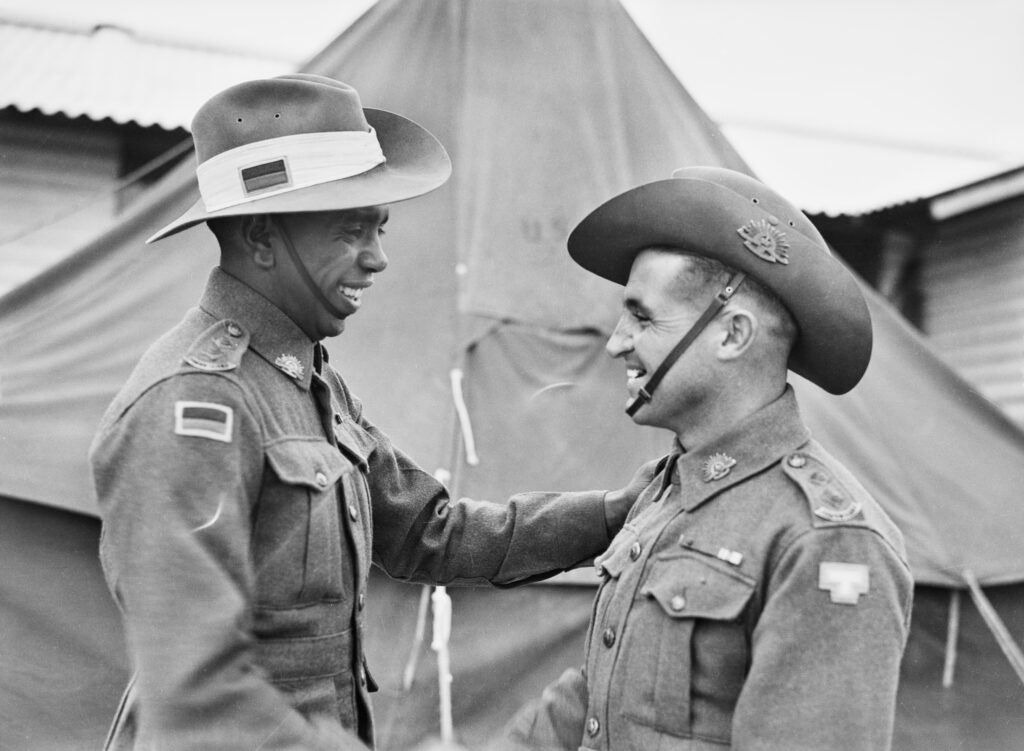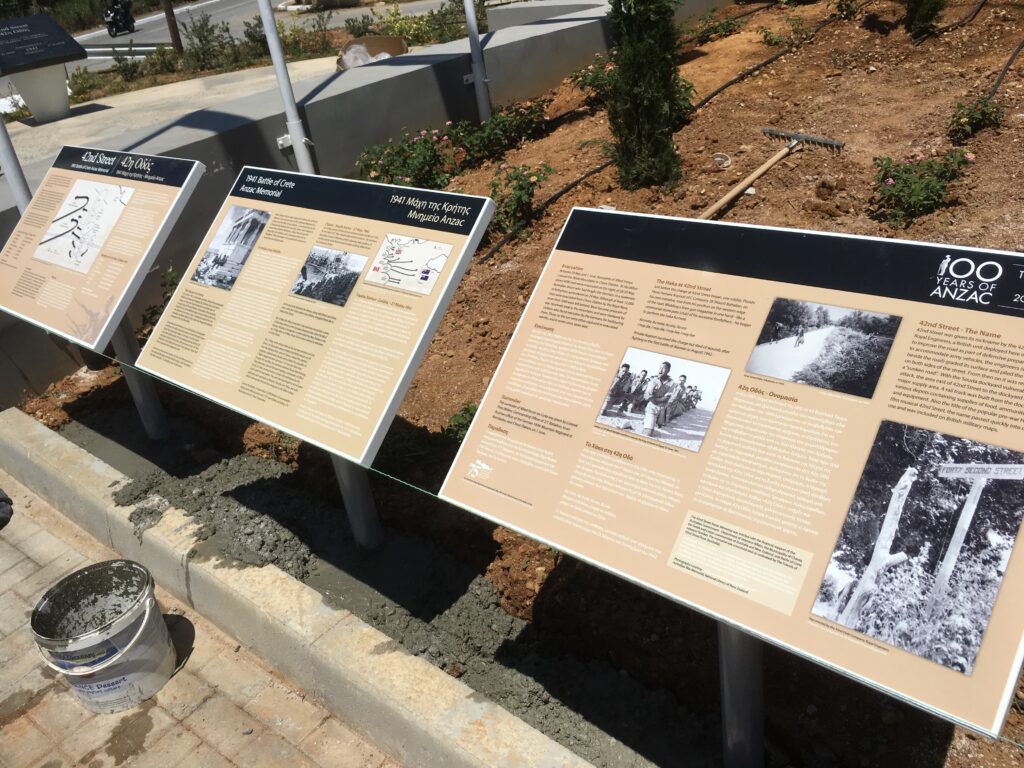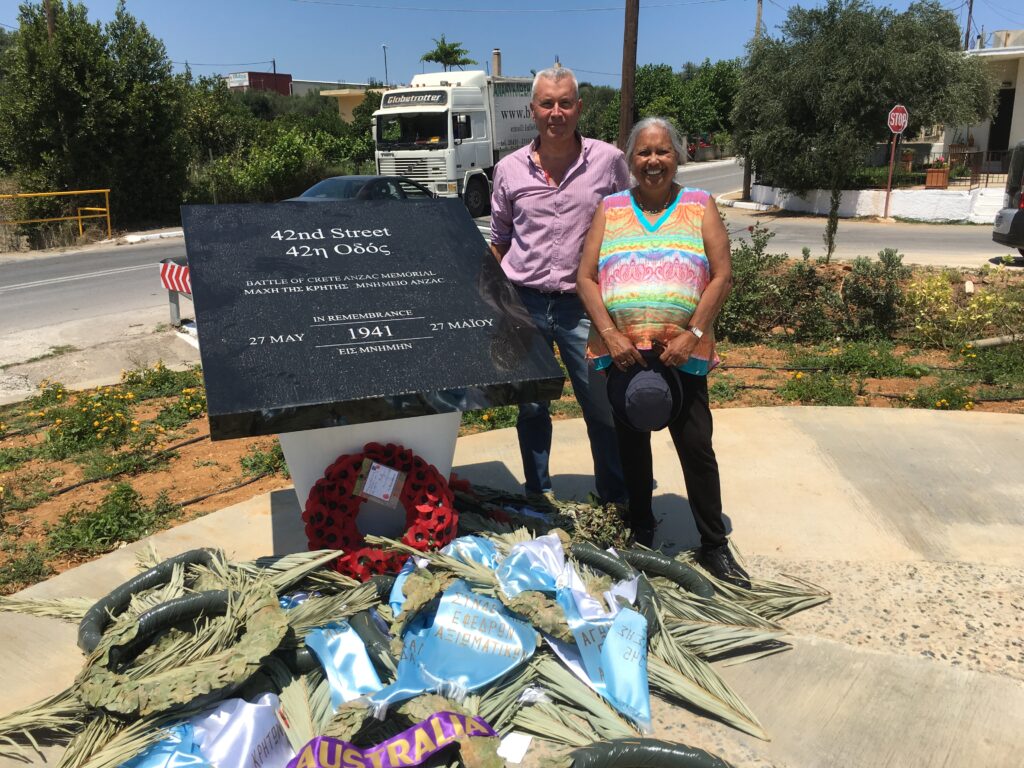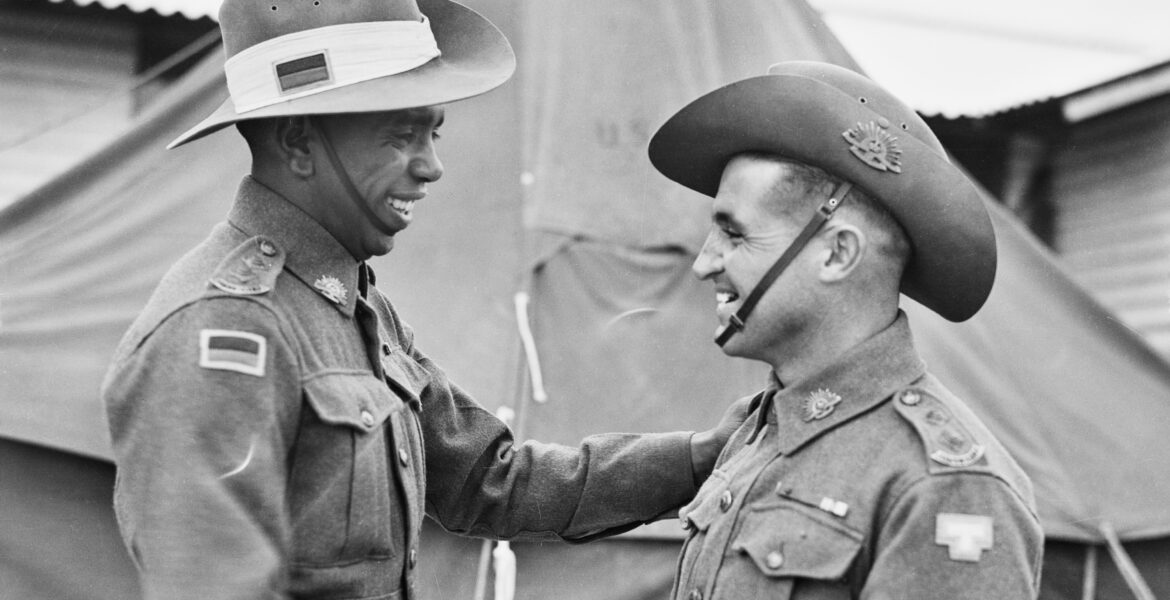Outreach and Engagement Officer of the Australian Archaeological Institute of Athens
As part of the programme of events for the Commemoration of the Battle of Crete, first nations Elder Aunty
Glenda Humes will deliver a talk about her father, Reg Saunders, the first indigenous commissioned officer in the
Australian Army who fought in Greece, a forgotten theatre of war in our Anzac story, but an important part of
our shared Australian-Greek history.
This story has its roots in Australia's frontier wars – the wars between the first inhabitants and the settler
colonies established in the wake of the arrival of the first fleet. Hume and her family, from Victoria's western
district, remember their Elder, Captain Reginald Saunders as a "warrior" in the tradition of the "Fighting
Gunditjimara" who defended their country against settlers and sealers in the frontier wars. When Australia
entered the First and Second World Wars, these proud warriors stepped up to fight for their country at a time
when their peoples were denied many of the rights of citizenship, including the right to vote, and were forcibly
moved off traditional lands and into reserves. They were not fighting for the "King of the Commonwealth", says
Humes: "Our men were fighting for our country as warriors, as they had always done".

Captain Reg Saunders was named in honour of his uncle, William Reginald Rawlings, who was killed in action in
France at the Somme in the First World War, and who earned a Military Medal for his bravery. His father, Chris
Saunders, served at Gallipoli. Indigenous men were mostly prohibited from enlisting, but this rule was not
applied consistently, and the young Reg enlisted in 1940, within a few months promoted to Seargent. Hume says
each of the Saunders men was honouring an ancient legacy of fighting and protecting their country.
Reg Saunders was deployed to northern Greece. In October 1940, Mussolini's forces invaded Greece, calling for
it to surrender. The Greeks sent a resounding "No"– OXI – to Mussolini and his troops, but this brought German
forces to Italy's aid, unleashing an onslaught of the German war machine. The Greek armies, reinforced by a
token deployment of Commonwealth forces was, sent to northern Greece in a disastrous campaign with heavy
Greek and allied losses, including Anzac forces – a loss often described as "the Second Gallipoli"1 To deal with
the disastrous Commonwealth strategic decisions, Australian General Thomas Blamey, commander of the
Australian Imperial Force in the Mediterranean was charged to form a second ANZAC Corps – the first having
been formed at Gallipoli, making Reg Saunders part of this historic ANZAC Corp tradition like his grandfather and
Uncle before him.
After the fall of Greece, these ANZACs were evacuated from the mainland to Crete, where they fought in the
infamous Battle of 42nd Street. Along this road in May 1941, hundreds of ANZACS tried to defend Crete, with the
brutal, close-quarter hand-to-hand fighting spilling into adjoining ancient olive groves. Saunders gave an account
of the battle: "They came over a rise 50 metres in front. I saw a German soldier stand up in clear view… He was
my first sure kill… I can remember feeling that it was just like shooting a kangaroo… just as remote." The New
Zealand account notes of the battle "The Australians produced a scream, even more, spine-chilling than the
Maori efforts, and the sight of the Maori battalion charging with vocal accompaniment sent the whole line
surging forward".

Crete may have fallen, but Saunders did not surrender, and like many of these ANZACs, the Cretan civilians hid
him. Humes recalls: "Dad ended up with the Tzangarakis family for ten months but left when the Germans executed the mother's brother, and he thought it was no longer safe". Humes comments that her father and
many ANZACs understood that the reprisals on Greeks captured for hiding an ANZAC were severe. Her father
never forgot the Cretans' fighting spirit and personal sacrifice; they reminded him of his family in Australia.
Captain Saunders gave so much to his country at a time when his people, custodians of this land for over 60,000
years, were mistreated in their own country. On his return to Australia, not only were Saunders' sacrifices
unrecognised, but the importance of the Greek campaign was also overlooked – a forgotten legacy still fighting
for recognition.
Aunty Glenda attended the dedication of the official Australian War Memorial, commemorating the Battle of
42nd Street in Crete near the village of Tsikalaria. The site was funded by private donors from the Greek
Australian community, the Joint Committee of the Commemoration of the Battle of Crete and the land was given
by the council of Chania. The site itself is recognised under the Australian War Graves Act (Cmw) 1980, and
Interpretive boards line the site testimony to the importance of the site and Saunders's role in this battle.

Asked whether Greeks and Australians know enough about the Greek Campaign, Aunty Glenda reveals that local
school children do not understand the significance of the campaign or the site that is part of their country's
history. Though she was warmly reunited with the extended Tzangarakis family during her time in Crete, she
acknowledges much needs to be done to educate locals – and the Greek and Australian populations – on the
Greek campaign and of the ANZAC and allied forces' contributions in Greece during the war. Aunty Glenda points
out that the Greek campaign has no Australian war medal. Her father's only awards were from the Greek
Government, which her family has since donated to the Australian War Memorial Museum.
Aunty Glenda's remarks highlight a historical void in our understanding of ANZAC history and a lack of empathy
to know the stories of those who sacrificed so much for our freedom. In the case of Captain Reg Saunders, we
have overlooked the service of a significant Australian – a warrior who, like his ancestors over millennia, fought
for what he believed in.
The Australian Archaeological Institute of Athens, Sydney University is therefore proud of its commitment to making
history better and to present a talk by Aunty Glenda Humes, "Captain Reginald Saunders Legacy of our Father
and Our Nation", as part of the Battle of Crete Commemoration program of events, 6:OO pm, 16 May Chau Chak Wing Museum University Place Camperdown, NSW 2006. Entry is free.


